WIPO GREEN for World Water Day: Water and Climate-Friendly Technology
March 20, 2020
To celebrate this year’s World Water Day – which highlights the connection between water and climate change – WIPO GREEN has prepared a special feature exploring the current trends in water-related climate-friendly technology.
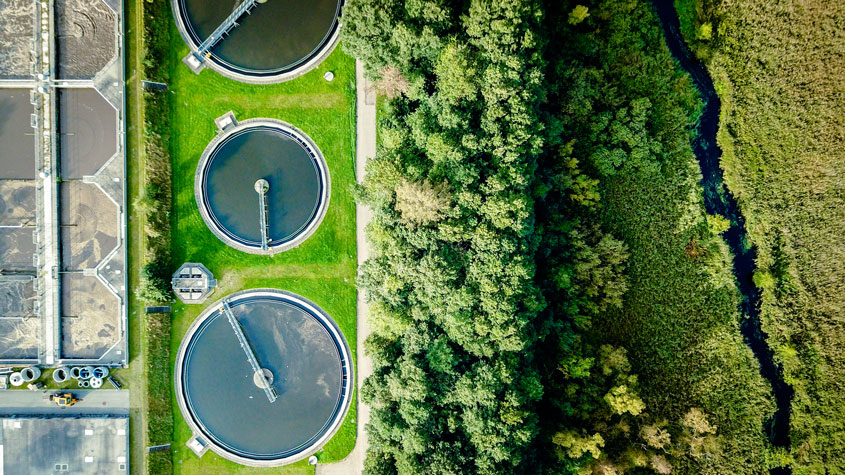
Water-related submissions in the WIPO GREEN database
The WIPO GREEN database is a catalogue of sustainable solutions and needs from across the world. It offers technologies from prototype to marketable products, available for license, collaboration, joint ventures, and sale. It also contains needs as defined by companies, institutions, and non-governmental organizations looking for technologies to address specific environmental, food security, or climate change problems.
The WIPO GREEN database provides 250 technologies and 73 needs related to water, coming from 35 countries. Over 50% of the water-related database submissions are in the subcategory of water treatment (181 technologies and needs); other subcategories include water efficiency, water production, water hazard, and water storage.
In addition, water technologies and needs can be found in other database categories, such as:
- pollution and waste (with 69 technologies and needs)
- energy (subcategories Hydro and Wave/Tidal/Ocean)
- green products (products that save water/energy)
- farming and forestry (Drought/water resistant cultivation)
- chemicals and advanced materials, building and construction, and transportation (Maritime/Waterways).
Israel, Kenya and the USA are championing the water category on the database, with 72, 47 and 42 water-related technologies and needs submitted respectively.
Featured technology
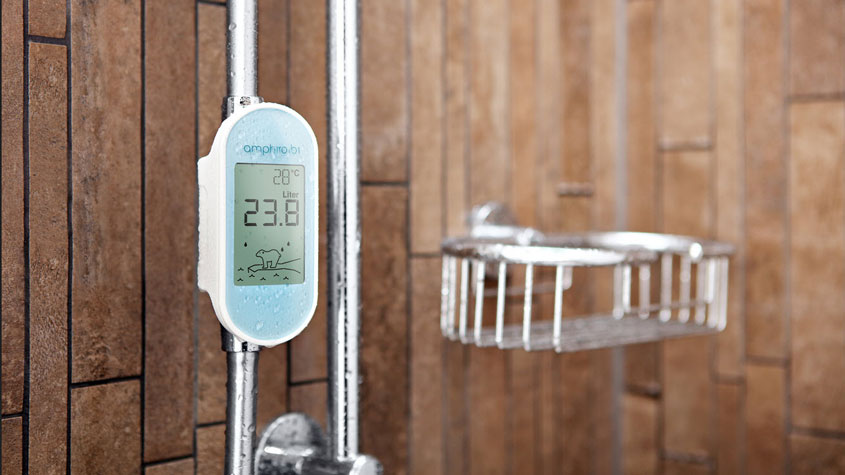
Shower water and energy consumption monitoring
Amphiro AG, Switzerland
The world’s first energy self-sufficient individual fitting sensor and communication module, Amphiro displays water and energy consumption during and after showering, helping users to save energy.
flow of water drives a small generator which then supplies the electronics with power and simultaneously serves as a sensor for the water volume. Amphiro sends its users real-time feedback based on a precise balance of “nudges” (gentle prompts) to motivate them to reduce their energy consumption.
Featured need
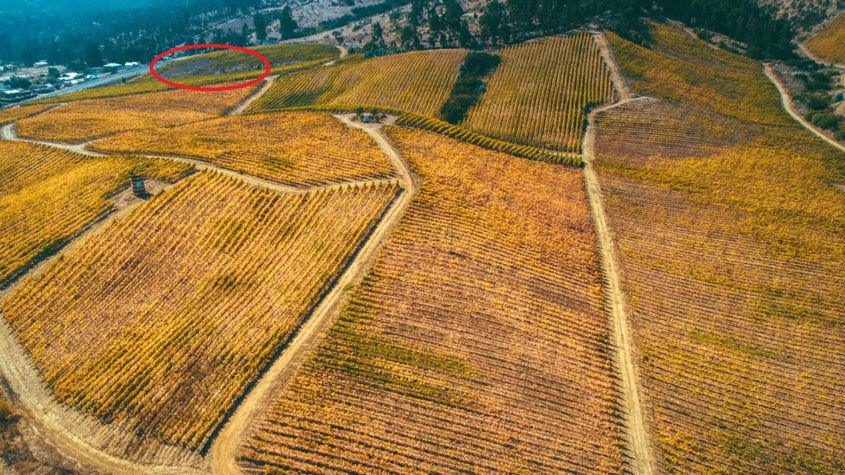
Sustainable ways to desalinate water
Viña Casa Marin, Chile
A winery in Chile is looking for technology in the field of water treatment.
The 2019 season saw a 38% drop in production due to drought, and the little fresh water available has become more saline.
To resolve the issue, Viña Casa Marin needs a technology to desalinate fresh water and mitigate the cost by using solar energy.
WIPO GREEN innovation acceleration projects and water
In addition to the online database, WIPO GREEN organizes innovation acceleration projects that build on its role to support greentech transfer.
Acceleration projects focus on a particular geographical area and technological domain, whereby providers and seekers can come together in person to fast-track the development and deployment of green technologies.
Out of the five acceleration projects that have taken place since 2015, four focused on water:
- Wastewater treatment project in Indonesia, Philippines and Vietnam
- Agriculture and water project in Ethiopia, Kenya and Tanzania
- international event Innovate for Water (hosted in Switzerland)
- as well as Energy, clean air, water and agriculture in Cambodia, Indonesia and Philippines.
The latest acceleration project on Climate Smart Agriculture in Argentina, Brazil and Chile identified a dozen water-related technologies and needs in the region.
Examples of water-related collaborations created during the WIPO GREEN acceleration projects
Acceleration project 2018: Energy, clean air, water and agriculture in Cambodia, Indonesia and Philippines
In the south of Bali, Indonesia, there is a place where tropical trees stand next to shiny metal panels. That place is Green School, a provider of climate-friendly education. To date, Green School has incorporated various clean technologies into its daily operations, including 85% renewable energy to supply the school’s power needs, a water filtration system, a waste management center, a composting station, aquaponics, and biodiesel buses. One of the missing pieces of this lean educational system was clean drinking water.
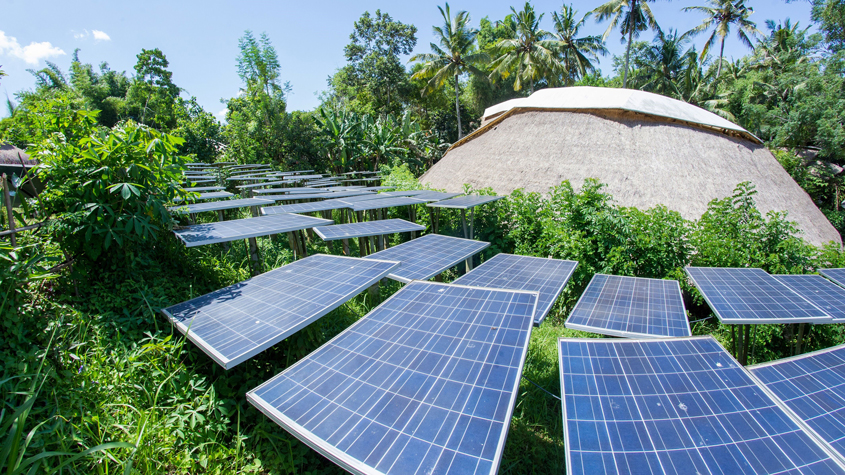
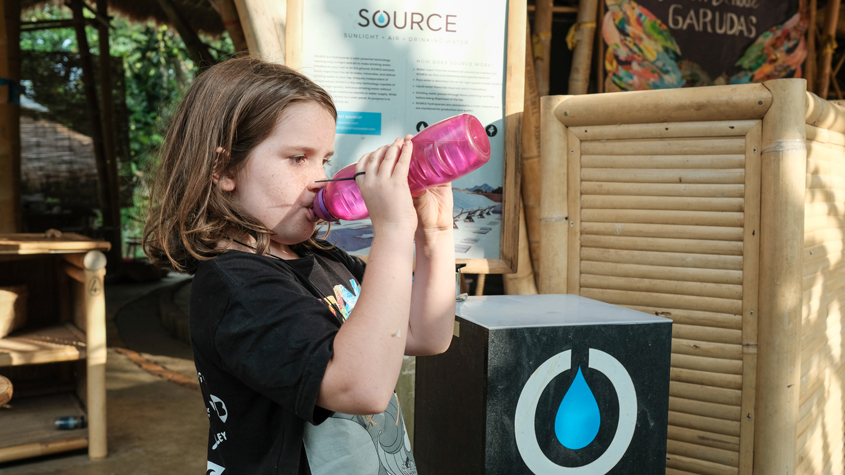
In 2018, the School’s Innovation Hub started looking for an easy-to-maintain way to generate drinking water for the campus, especially in dry season. In June of the same year, Green School attended the Green Technology Matchmaking Event – part of WIPO GREEN’s Acceleration Project in Southeast Asia. There they met Zero Mass Water, whose SOURCE Hydropanel uses solar power to extract moisture from the air to produce drinking water
[…] finding the right company to collaborate with is not always easy; the area of our work, geographical and climate context of our location – all these features play a role when we take a decision on incorporating a new technology […] That is why, when we learned about the matchmaking event in Manila, it seemed like a great opportunity to build some in-person connections with innovators working particularly in our region.
Baxter Smith, Innovation Hub Project Manager, Green School
Green School collaborated with Zero Mass Water to use the SOURCE Hydropanel to supply Green School’s Bali campus with drinking water.
Acceleration project 2017: International event Innovate for Water
Portuguese company Cubo Environmental Technologies has developed a compact, modular, containerized technology to produce safe drinking water from natural water sources, such as surface water and ground water, at an affordable price. But the firm faced a challenge: Most of the target locations for its technology do not have access to an adequate water distribution infrastructure.
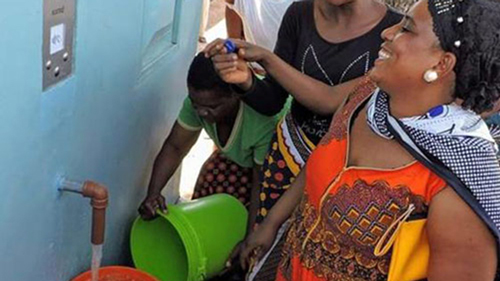
In June 2017, Cubo came to an Acceleration Project event called Innovate 4 Water looking for a solution to their problem. The event brought together technology providers and entrepreneurs, investors, public sector organizations, incubators, and other stakeholders in the water sector. Among them was Susteq, a Dutch company that has developed a water payment and dispensation terminal.
Susteq’s solution sounded like a way to help Cubo deliver water to the final user by utilizing the “smart water” approach – leveraging the power of technology to integrate a payment and collection system.
At the event, Cubo’s Chief Technology Officer, Rui Brás Gomes, made contact with Susteq. After that first meeting, Rui decided to take the Cubo team to the Netherlands to visit Susteq headquarters. At the end of the trip, they established a partnership that would allow Cubo to use Susteq’s terminals in its treatment and distribution systems.
Global trends in water-related cleantech
WIPO GREEN asked Dr. Peter Oksen, Senior Program Officer for Climate Change and Food Security at WIPO, to comment on the current trends in climate-friendly water technology. A former Associate Professor in Development Studies at Roskilde University in Denmark, Peter has over 20 years of experience in socio-economic development and natural resources management. He also delivers a course on "Water resource management" focused on developing countries and the Sustainable Development Goals at SciencePo, University of Bordeaux.
“Conservation and efficient use of freshwater resources is a subject of increasingly critical importance, and technological innovation is constantly providing new ways of achieving this at all stages of the global water cycle,” - says Dr. Oksen. “There are several trends in green technology that are applicable to many fields, including water.
For example, satellite imaging technology has huge potential to help us properly manage water resources and protect communities exposed to water-related risks. Today, a large number of satellites - both private and public - collect up-to-date borderless information on the state of rivers and reservoirs, and can provide early warning about upcoming stress situations.
Water desalination technologies are gaining increasing importance in countries with severe water stress. While already being a mature technology, innovation and new materials improves energy efficiency and brings the operation costs down. Desalination plants supplied by renewable energy sources is another promising development.
Also, global interest is growing in relation to water distribution networks, which are becoming increasingly sophisticated. The latest distribution systems already have connected pressure sensors and automated pressure control, helping to reduce water loss. Blockchain technologies are starting to be used for efficient management and exchange of allocated water rights, directly between users. In some developing countries, technology enables new distribution networks which leads to dramatic sanitary improvements for example through automated water dispensing units where people receive reliable access to improved water sources using locally adapted payment methods.”
These and other new water-related technological trends will be further explored in the upcoming WIPO Global Challenges Brief on water, sanitation and hygiene.
About WIPO GREEN
WIPO GREEN is a global marketplace for sustainable technology, supporting global efforts to address climate change. Through its online database and regional activities, WIPO GREEN connects green tech seekers and providers in order to catalyze green innovation and accelerate green tech transfer and diffusion.


